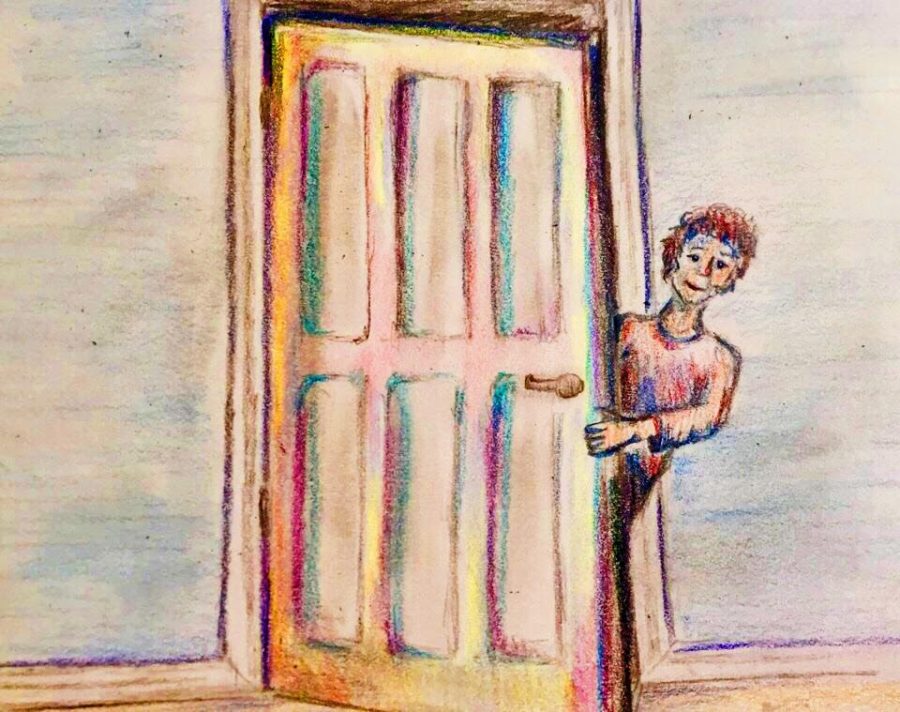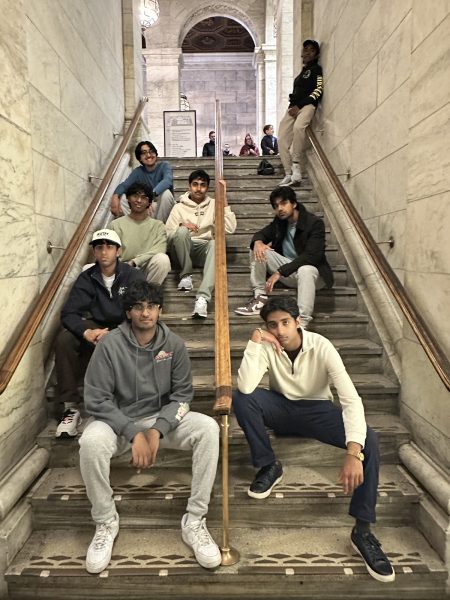Is 2018 the year to come out of the closet?
Coming out of the closet is a phenomenon that is a milestone in the live’s of most queer people; but has it gotten easier or harder?
I came out of the closet in the summer of 2017. Out of anywhere in the world, it happened in Singapore while I was visiting family. After coming out to my closest friends and discovering my untapped courage to step out of my comfort zone, I thought it would be a good idea to get my ears pierced-without my parent’s’ permission. When I got back to my Aunt’s condo, there sat my mom unaware of my new accessories at first, but it wasn’t long until I ended up getting my earrings taken out by force; the result was reflected by the two remaining gashes on my ears. Out of both anger and fear, it was during the heated altercation that I felt it was the right time to come out. So I did.
Coming out of the closet for me was relatively easy. Given that it was fueled by anger and pain, I can admit that it wasn’t delivered in the most responsible way possible, but it still got the job done. The remainder of the trip and a few weeks after it, I felt an undeniable tension between my mother and me. It was not just rooted in the fact that I went behind her back to get the piercings, but she was convinced that I had been lying to her for the past 18 years. As time has gone on, my entire family has grown to accept me for who I am. I was lucky in the sense that I ended up with a family that supports me no matter who I love. With that being said, I feel a responsibility to acknowledge the fact that it is not necessarily easy for everyone to come out of the closet considering everyone’s family will react differently.
The unpredictability of such has proven to be a good revenue stream for the entertainment industry. From movies such as Love, Simon to Youtube videos such as Connor Franta’s, the act of coming out has been promulgated and capitalized off of by entertainers for a while now. To me, this practice has two sides. One benefit is that LGBT members have a chance to relate to other queer or trans folk and get a chance to invalidate feelings of alienation. However, some of these experiences run the risk of setting high standards for how people around might react.
Aside from expectations that are or aren’t met, coming out has standard phases in which the majority of queer and trans persons can relate to. A study published by the Journal of Mental Health highlights that members of the LGBT community go through various stages for coming out of the closet: identity confusion, comparison, identify acceptance, immersion, and identity synthesis. The study lists that at first, pondering the thought of coming out can lead to a confusion in people wherein they begin to challenge and question their own reality and overall sanity due to an overwhelming feeling of alienation. Research by Daniel Wegner describes that trying to live secretly can trigger a cognitive response that leads to an obsessions with the secret- in this case with one’s sexuality. Coming out invalidates the need for concealment.
The feeling of alienation dissipates as people decide to disclose their sexuality to people that they trust- whether it be a best friend or siblings. Immersion, the next stage, accounts for those that absorb the culture of consumers or survivors (this stage explains how and why people who are attracted to movies like Love, Simon find solace in another person’s own experience). The last stage is paired with a notable expression of pride from immersing into the LGBT culture and identity synthesis; the person’s sexuality has been embraced into one’s identity.
The inner pride felt from coming out is not always mutually exclusive with acceptance as aforementioned. Socially, avoidance by others, general disapproval, and sometimes destructive self-fulfilling prophecies, have given the impression that coming out is a negative experience. Despite the external factors, coming out of the closet is a genuinely liberating experience that has been noted to increase self-esteem, decrease stress, diminish the likelihood of risky behavior, and facilitate deeper connections with friends and loved ones.
As aforementioned, the Queer community’s struggle with coming out of the closet is notorious for its unpredictability. The unpredictability of the stories surrounding coming out is rooted in various ways in which how someone chooses to come out or inability to do so. One struggle that LGBT members can potentially face is the risk of being outed. Outing someone means to publicize the fact that a specific person is gay or lesbian when that person has actively tried to stay in the closet. A large portion of queer people -in addition to facing the risk of outing- also face internalized and external homophobia. Homophobia that is rooted in moral condemnation of homosexuality may lead both to belief that homosexuality is a choice and opposition to LGBT rights, while acceptance of LGBT rights may lead to a belief in a biological basis for homosexuality as part of a constellation of tolerant beliefs
A closeted student at Lambert high school, who wishes to stay anonymous, told me his struggle with internalized homophobia and his genuine fear to come out of the closet. He said that he’s known he has been bi “since 11th grade” after acknowledging “feelings for both males and females” but can’t come out. “I was raised in an environment where I am only supposed to like girls. I couldn’t possibly come out because I don’t know how my parents would react.” He also said that due to the expectation from his parents, he faces a constant anxiety that his parents or people around him will discover his secret.
The experience of the anonymous student conjures memories of an old me: a self-loathing, angsty teen with a deep, dark secret. Unfortunately, this is the case for one too many queer and trans kids. A feeling of being stuck in one’s sexuality or identity is rooted in society’s mindset. By raising kids to like their opposite sex is where the problem starts and the problem is exacerbated if the child is brought up in an environment that is demanding of heteronormative behaviors.
Despite common belief, coming out is a choice, but sexuality is not. By training society to stop assuming identities and dissociate sexual orientation with a decision, we get rid of the risks that so many people in and out the closet face. By dismantling stigmas and advocating for minority groups like the LGBT community, we set the stage for society to truly develop into a forgiving and accepting society.
Your donation will help support The Lambert Post, Lambert High Schools student-run newspaper! Your contribution will allow us to purchase equipment and cover website hosting costs.












